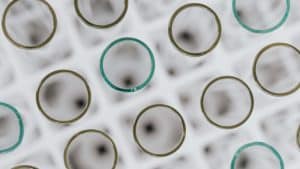The body’s immune system protects us from common illnesses such as the cold and flu as well as more serious age-related health issues, chronic disease, and cancers. Because the immune system is so important to our overall wellness and longevity, it is essential that we care for and support it as best as possible. An effective way of doing this is by eating plenty of immune-boosting foods.
The Importance of a Healthy Immune System
Before we get into what foods are best for our immune function, let’s take a moment to discuss the importance of the immune system itself.
As we move through the world, our bodies are under constant assault from various agents of illness. Fortunately, the immune system is there to protect us from them and any disease or dysfunction they may cause.
The immune system also plays an important role in longevity as it combats free radicals and oxidation that contribute to serious health issues such as neurodegenerative disease, cancers, and other chronic illnesses.
Keeping the immune system healthy also reduces the risk of immune dysfunction and autoimmune diseases like type 1 diabetes, rheumatoid arthritis, and Hashimoto’s thyroiditis.
Because of its significant influence on the immune system over these and other areas of health, it is essential that we do our part to support and care for it.
Support Your Immune System by Eating Smart
There are several factors that influence immune activity and the overall health of the immune system. One of the greatest being diet.
Supplying your body with the right high-quality nutrients can improve immune function and help ensure that it continues to work at its best. Below are some of the best immune-boosting foods you should consider including in your diet.

Acai Berries
Acai berries have become a popular immune-boosting food. Not only do they taste good, but the flavonoids found in the berries act as powerful antioxidants that limit oxidative stress, promote healthy immune activity, and reduce inflammation.
Almonds
Almonds contain a high concentration of vitamin E. This fat-soluble vitamin plays an important role in immune regulation. You can get your daily allotment of vitamin E and support a healthy immune function by eating just half a cup of almonds.
Broccoli
Broccoli is packed with nutrients including vitamins A, C, and E, fiber, and various antioxidants. Each of these substances support immune function. The best way to gain all the nutrients contained is broccoli is to eat it raw. If you prefer your broccoli cooked, steaming is an acceptable alternative.
Citrus
Citrus such as grapefruit, oranges, and lemons, all contain large amounts of vitamin C. Vitamin C naturally increases white blood cell count, which supports our ability to fight off infection.
Dark Chocolate
Dark chocolate contains theobromine, an antioxidant that protects cells from free radicals. This improves immune function and reduces the risk of various age-related illnesses and chronic diseases.
Elderberries
Elderberries are packed with immune-boosting substances. Some studies show that the flavonoids and other compounds in elderberry may help combat and ease colds, flu, and bacterial sinus infections.
Garlic
Garlic provides several immune-related benefits. Studies show that garlic acts as an antibacterial, antiviral, and anti-fungal. It also contains a wealth of antioxidants that combat free radicals that contribute to neurodegenerative illness, heart disease, and cancers.
Ginger
Ginger has long been used to deter illness. Studies show that ginger helps regulate inflammation, reduce throat pain, and combats nausea. Additionally, research has found that the immune-regulating qualities of ginger may even ease chronic pain.

Green Tea
Several varieties of tea provide antioxidants that support healthy immune activity. Green tea is exceptional because it contains high values of epigallocatechin gallate (EGCG). Studies show that this antioxidant is effective at bolstering immune function. Green tea also contains L-theanine, which supports the production of protective T cells.
Kiwis
Kiwis, besides housing a great deal of vitamin C, also contain folate, potassium, and vitamin K. Increasing your intake of these nutrients can encourage healthier immune activity.
Mushrooms
Mushrooms house a high volume of selenium and vitamins B2 and B3. We need these substances to maintain healthy immune activity. Mushrooms also contain polysaccharides that further support the immune system.
Poultry
Chicken and turkey both contain a sizeable amount of vitamin B6. B6 is used in many chemical reactions throughout the body and is an integral component of red blood cell formation.
Red Bell Peppers
Bell peppers, specifically red peppers, are an excellent source of vitamin C. On average, an ounce of red bell pepper contains 127 mg of vitamin C, which easily fulfills our recommended daily allowance. Increasing your intake of red bell pepper is a simple way to boost your vitamin C values and support healthy immune function.
Shellfish
Zinc is an essential nutrient needed in small amounts to maintain healthy immune function. Fortunately, you can get nearly all the zinc you need by eating shellfish like oysters, crab, lobster, and mussels.
Spinach
Spinach, besides being full of vitamin C, contains a bounty of beneficial antioxidants and beta carotene. These substances support immune function and increase the body’s ability to fend off infection. The nutrients in spinach are best gained when it is consumed raw, but lightly cooked spinach is also acceptable.
Sunflower Seeds
Sunflower seeds are home to nutrients such as phosphorous, magnesium, and vitamins B6 and E. Sunflower seeds are also brimming with selenium. Studies suggest that increasing selenium values by snacking on sunflower seeds may help protect against viral infections.

Turmeric
Turmeric is perhaps best known as an ingredient used in Indian cuisine. However, in addition to providing a great deal of flavor, studies show that curcumin, a compound found in turmeric, may provide notable immune support and antiviral benefits.
Yogurt
Yogurt contains a wealth of nutrients and beneficial bacteria that encourage healthy immune activity. The best immune-boosting yogurts are plain varieties fortified with vitamin D. Try to avoid those with added flavorings or sugars as that can put strain on the immune system.
Restore and Support Your Immune System by Eating Immune-Boosting Foods
The health of your immune system is a key determinant of disease prevention, longevity, and overall wellness. You can support your immune system by incorporating some or all of the immune-boosting foods we’ve discussed into your daily diet plan. Remember, no matter your dietary goals, it is important to eat a healthy variety of foods, follow recommended serving sizes, and avoid foods to which you are allergic or sensitive. By following these recommendations and eating plenty of immune-boosting foods, you can support your immune system and get you closer to achieving your wellness goals!


